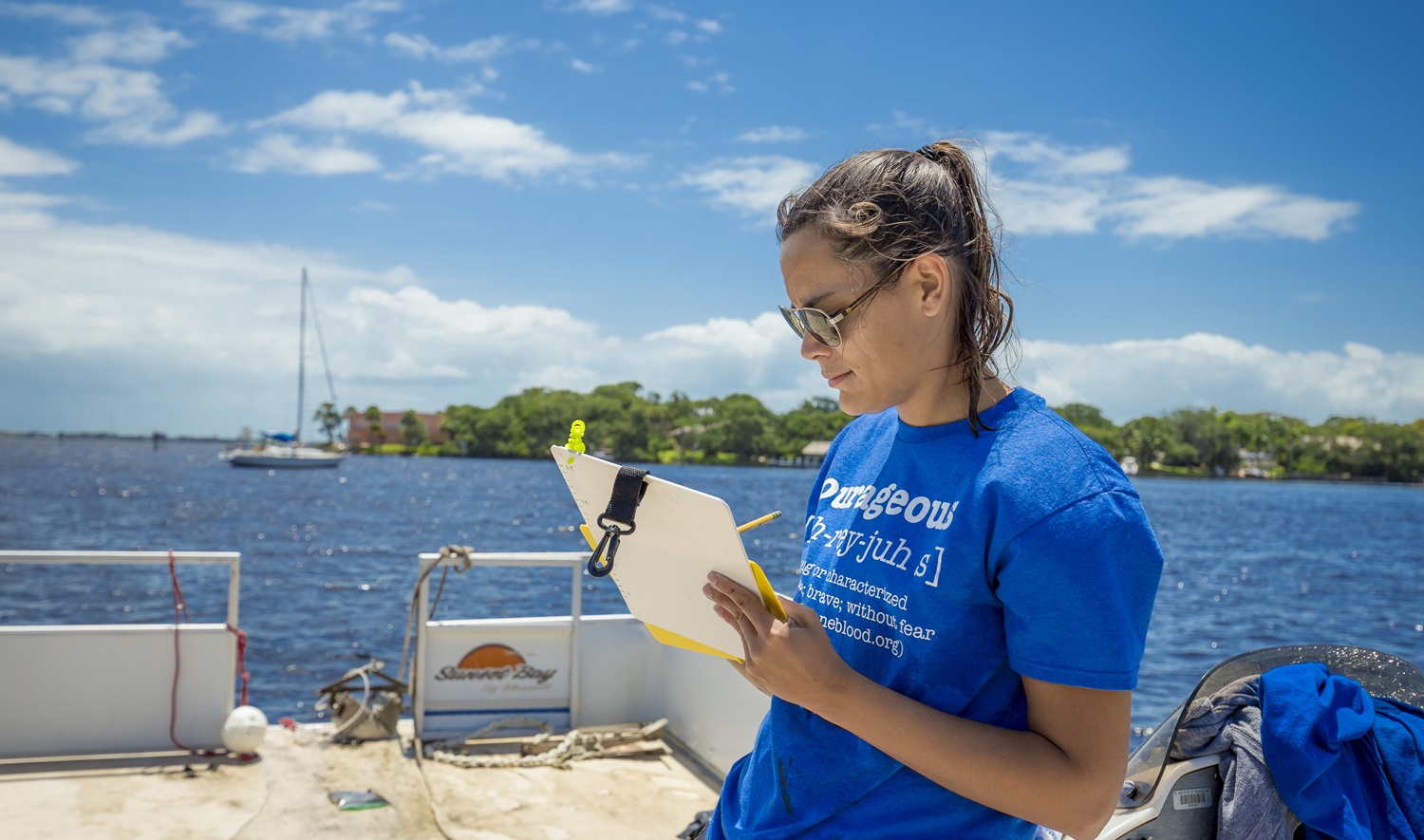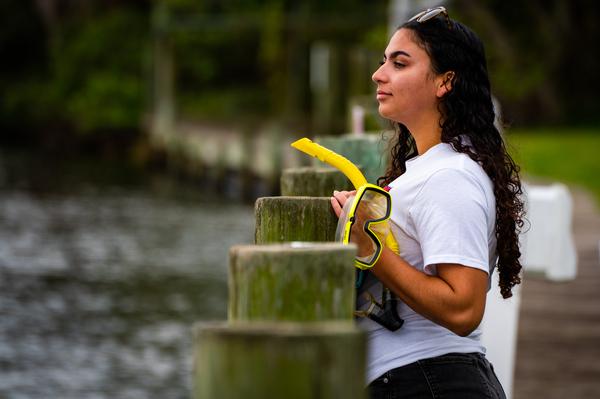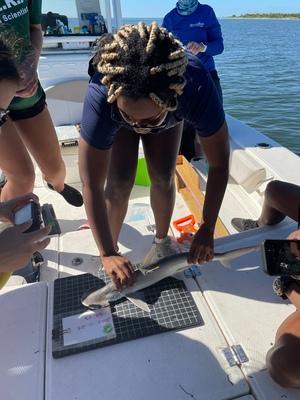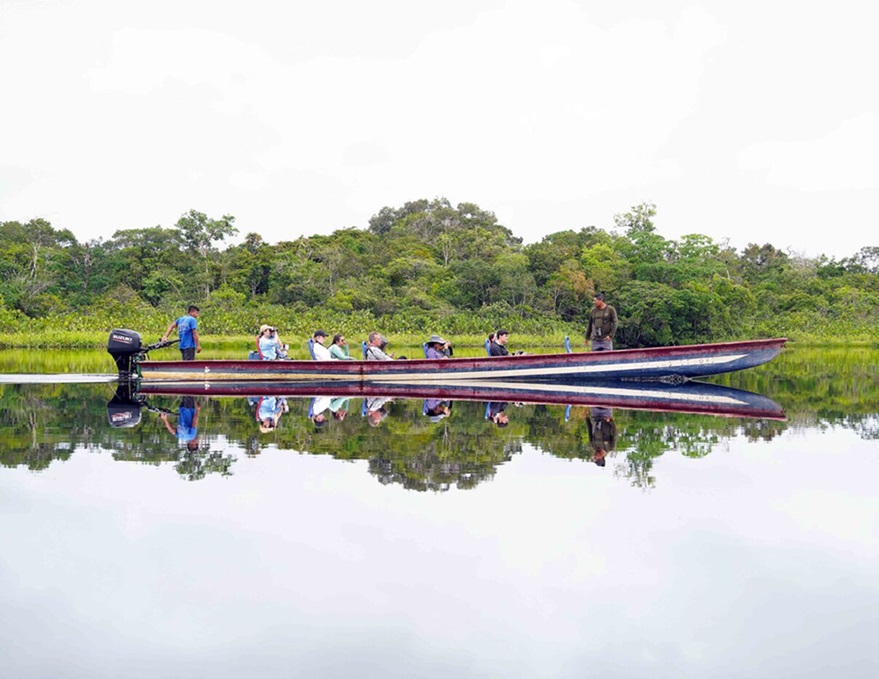Summer Programs Expand Your Horizons—and Your Résumé
Our marine biology students take research to a whole new level—above ground and underwater—whether diving in the warm waters of Puerto Rico or the cooler waters of the Galápagos Islands, observing orcas in the Pacific Northwest or contemplating the ecology of the Amazon!
Florida Tech’s summer field courses are exhilarating, hands-on opportunities that provide you with once-in-a-lifetime experiences and a huge résumé boost for internships and job opportunities.
Image: Professor Mark Bush, center of boat, leads Florida Tech students in a summer field course on the Lagartococha River in the Ecuadorean Amazon in July 2023.
Photo credit: Rich Aronson


 Give to Florida Tech
Give to Florida Tech 



